Darren Aronofsky‘s feature adaptation of Samuel D. Hunter’s acclaimed play The Whale is looking very likely to earn its star, Brendan Fraser, an Oscar for his devastating performance as Charlie, an obese writing professor who is approaching the end of his life when he decides to make amends to those in his life, including his estranged daughter, Ellie (Sadie Sink). Joining Charlie for his final days are Fraser’s fellow Oscar nominee Hong Chau as his friend and nurse, Samanta Morton as his ex-wife, and Ty Simpkins as a religious salesman who shows up at Charlie’s door at the worst possible moment.
The Whale is an incredibly moving film that is enhanced by its score, which comes courtesy of Rob Simonsen, a composer who has kept incredibly busy over the past 20 years. He landed a big break with the 2009 Sundance sensation (500) Days of Summer, and things haven’t slowed down since, as he recently scored Ryan Reynolds‘ Netflix movie The Adam Project and Jason Reitman‘s Ghostbusters: Afterlife, in addition to Disney’s Stargirl and its sequel.
The Whale is currently up for three Academy Awards, including Best Makeup and Hairstyling (it recently won an award from the MUAHS guild), and although Simonsen’s score missed out on an Oscar nomination, it was nominated in the indie film category by the Society of Composers and Lyricists, which will hold its annual awards ceremony on Wednesday, Feb. 15.
Below the Line spoke with Simonsen in December, and he told us about his background in scoring music, as well as his respect for Aronofsky’s usual composer Clint Mansell and his prior scores for the director’s films. Simonsen also discussed his artist collective, the Echo Society, so read on to find out more about its mission.
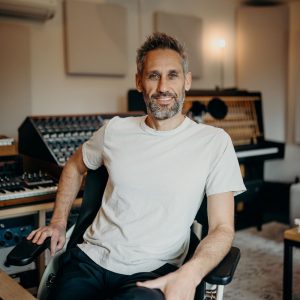
Below the Line: Before we get into The Whale, I’d love to know more about your background and how you got into scoring music.
Ron Simonsen: I played piano, mostly by ear, when I was young, growing up, and then took some piano lessons and eventually got into playing more jazz in high school and college. I was playing in bands that were kind of jazz fusion bands, but at home, when I was about 13, my dad got me a Mac SE, which ran Performer, a really early MIDI program, so I started getting into creating my own compositions.
I am really a beneficiary of the digital era because I was able to just do multitrack studio music creation on my own when I was really young, and that opened my eyes. In high school, I had a group of friends, we would all spend our free time making movies together. A lot of those guys went off and studied different aspects of filmmaking in college, so when they started making their student films, I got into doing music for them, and then was like, “Wow, I can be in my room on a computer, programming things and yet, making movies.” I felt like I was built for it.
The first feature that I scored went to [the] Seattle International Film Festival. Mychael Danna was a guest speaker there, and I got introduced to him and I liked his music, and I liked what he had to say. A year later, he and I both moved to L.A. and I started assisting him, and he let me work up the ranks under him. I had to do a lot of catch-up in terms of learning about orchestration and instrumentation and writing for an orchestra, so I took it upon myself to do a lot of self-study and did some private study with a USC music teacher. I had to do some making-up for some of those things to help improve my skills, but for me, music is always really about kind of what moves the heart, and that’s not something that can really be taught in school.
BTL: Since you started on MIDI pretty early, were you involved fairly early doing digital audio on computers, too?
Simonsen: Yeah, when I was maybe 14 or 15 — it might have been 13, I don’t remember exactly — but once I understood what you could do with computers, it was pretty great. Synthesizers and multitrack recording, there were no roadblocks in that sense.
BTL: Did any of the student filmmakers you scored films for go on to direct features?
Simonsen: You mean the people I went to high school with? Nobody went to USC, one guy went to Cal Arts, somebody else went to a school in Vancouver, and other people went to school in Oregon. It was kind of peppered around, but some of them have found their way into different aspects of the film world, but none of those guys have directed anything in quite a while.
BTL: Do you consider (500) Days of Summer to be your breakout that led to many of the other projects you would score?
Simonsen: Definitely, because the call came in for Michael, and at that point, I had done a lot of additional music for him, and I think he knew what I was capable of. He said, ‘Do you want to do this movie together?’ So I watched it and loved it. I felt like it was a rom-com that was made for my generation and something I could really relate to as a man pining after an unavailable woman [chuckles], which is what that movie is about. So I was like, ‘Yeah, this is great. I’m in.’ And so, we did that and had a great time, and then, after that, other opportunities started opening up.
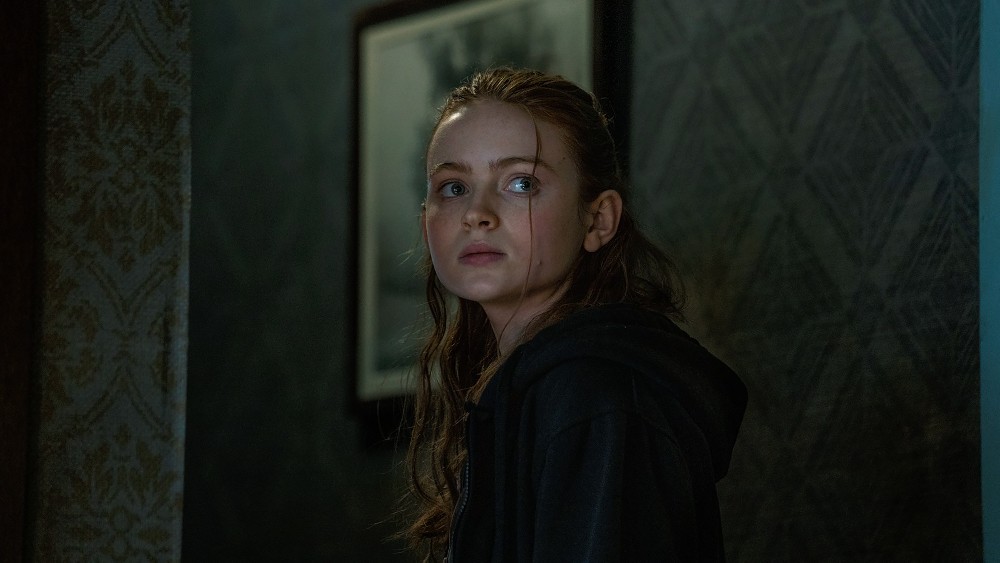
BTL: I know there have been a lot of great projects in between, but let’s talk about The Whale. How and when did Darren first approach you, and did he mention anything he’d heard of yours that made him realize you were the guy for The Whale?
Simonsen: They had been putting up some different music to picture, and I think some of my score from Foxcatcher made it [in] there. I think they really liked how that played — [it’s] a very different score, in all ways, [from] The Whale. Nonetheless, I think that’s what got me on his radar, and then he listened to a lot of my work and called me up and said, ‘I’ve got this film. I want to show it to you and see what you think, and if you like it, let’s figure out a way to do it.’ And I loved it, so that was a no-brainer. It happened pretty fast. In a matter of two or three days, we went from having a first conversation to actually signing on to the film.
BTL: So he already had a first cut of the movie for you to watch?
Simonsen: It was pretty far along, actually. I don’t think the cut has changed much since the first cut that I saw. They were pretty far along in their edit by the time they called me, so we had to hit the ground runnin’.
BTL: Did it have some of your music in there as temp score, or did you watch it without any music at all?
Simonsen: I actually didn’t listen to anything that had been temped in there. Darren and the editor, I think, were not attached to anything that had been temped in there, and I don’t think Darren is used to working with music editors, actually, so it was a new experience for him. Nothing ever really stuck, so it was a very fresh approach to the film.
BTL: He has worked with Clint Mansell for a long time, but I can’t remember who scored his last film, mother!
Simonsen: He hired Johann Johannsson on mother! but they actually ended up pulling all of the score, so there’s no score in mother!
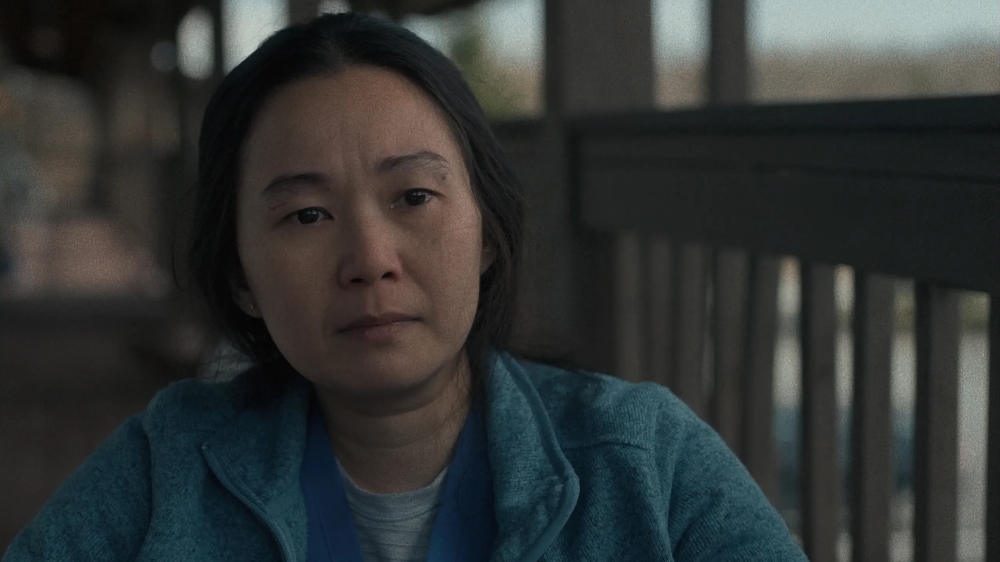
BTL: Ah, that’s right. So once you started talking to Darren, what was the direction he gave? I’ve spoken to him a few times over the years, but oddly enough, I’m not sure we discussed his music, so I don’t really know where his head is at as far as how well he knows music or film scores himself.
Simonsen: No, he does. All those scores that he’s done previously using the Kronos Quartet, that was Darren’s connection, really, because he knew the Kronos Quartet, so yeah, he knows music. It was a very respectful interaction in the sense that he really looked to me to generate musical ideas, and we put them in the picture to see how they were working, and [we] really worked in that way where it was just a testing ground for quite a while, I think, before Darren thought, ‘Yeah, this is the direction. This is working.’ Which is a little unusual.
I feel like most of the time, directors either come with a really strong idea about music or at least a feeling they really want to go for — or it’s temps, and there’s a pretty well-crafted score of existing music throughout the film that is already there. And so then the composer has to do something that’s going to hit all those notes in the way that the directors are attached to, as well as do something new and reinvent [themselves] to a certain degree. There really wasn’t that at all on this one, so it was truly a clean swipe at it, which was really, really rare and really nice.
BTL: Were you pretty well-versed in the music for Darren’s previous movies?
Simonsen: Sure, I love those scores, and I love those films. I’m a huge fan of Darren’s work, and the music in his films has always been something unique and special. Being the next one to score a Darren Aronofsky film was a real privilege.
BTL: As far as I can recall, you also didn’t have to deal with any needle drops that you had to work around. I’ve never seen the play on stage myself, but tonally, The Whale is a very interesting film, as it’s dramatic, and yet the score has subtle horror elements. With something like this, you can always go too far in one direction or another, so how did you find that balance where the music didn’t overpower any of the dialogue but still helped create the tone that Darren was looking for?
Simonsen: In my early experiments, when things tried to speak just to the emotions, it felt like we [weren’t] really trying to feel sorry for this guy, or be too leading. And then, when we went dark, it seemed way too dark. For me, what I was trying to score is the feeling of being lost [in] this sea of your own emotions. Everything is a little bit off-kilter and woozy [with] this sense of “Oh, god. Here are these emotions that I don’t know how to process, so I’m going to reach for something” which I think most people can relate to. I think most people don’t have perfect emotional processing skills. We know that feeling when we’re overwhelmed with emotions, or there are traumas in our past that we’re haunted by.
For me, we’re really watching someone who is kind of killing themselves, and it’s really not about his weight. It’s about somebody who’s killing themselves because they don’t know how to go on. Living with this kind of broken heart that they have, I mean it’s tragic, and it’s beautiful, and I think it’s something that is very real in our world. Especially because you see the days pop up as the story goes on, there’s a sense of impending something. To me, it’s just like we’re on this spooky trek through the last days of his life as he’s trying to connect with his daughter, and it’s a redemption story. I think it’s something very mythological, and it’s allegorical, and there’s the thread of Moby Dick and literary references and the Bible and all these kinds of things.
[The score] was really kind of trying to support the emotion, while also bringing a classic sensibility to the film, because Charlie is a very erudite, very smart, very bright mind, who’s very well-read and ultimately, has a very deep intellectual side. He’s a writing teacher, so bringing a classical sense of the music, I think, felt good to this guy who is living in a small apartment [in] rural Middle America, and just, like, ordering pizza every day. I liked what that did, and I felt that spoke to his intellectual capacities. The score was really trying to hit a lot of different tones, both emotionally as well as the intellectual world of it, and that’s how we arrived at it.
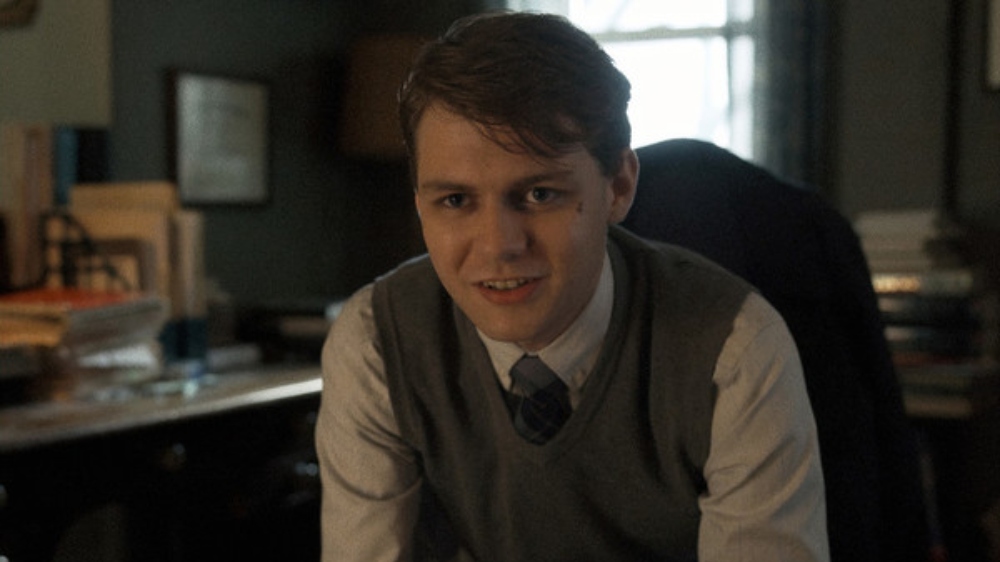
BTL: It’s a very orchestral score, but when you’re writing, do you sit at a piano and come up with things, or are you always working at the computer from the very beginning with MIDI strings and samples?
Simonsen: Sometimes, it’s really helpful to have the samples to get an idea about how something really feels on those instruments. Usually, when I’m just trying to work on the mechanics of a theme or a chord progression or a piece of music, it’s very nice to work [on] it at the piano. One of the things that I did early on for this film was, I contacted a guy in Belgium [who] makes overtone flutes, and I asked him to build the biggest overtone flute that he’s ever built. He made one that was 21 feet long and recorded himself playing it in a church.
That was really the idea with the sonics overall — to have things very reverberant, so they were hanging in space to give a bit of an underwater feel, the way that things kind of appear and disappear underwater. This overtone flute sounds like a cross between a didgeridoo and a bass flute. It’s a really haunting, hollow beautiful sound that, to me, I’m, like, not even sure what it is. And so, that is layered in with the score, and we’re hearing that pretty, pretty consistently throughout.
And then I wrote the orchestral stuff specifically for the London Contemporary Orchestra at AIR Studios, because they have a real shorthand for a lot of their extended techniques, and they have a vibe and a sound, and the sound of Air Studios, it’s an old church, so it has very tall ceilings, and it has this very pristine reverb that is just gorgeous. I deliberately had all those things in mind from early on.
BTL: Was this done at a time when you could actually go over there and record?
Simonsen: No, we didn’t record there. It was pretty sad. Basically, we’d do a Zoom, and then they’d pipe in a high-quality audio stream, and Darren and I were in a production suite at Warner Brothers in New York, and they were in London recording.
BTL: You mentioned that for The Whale, you had an edit and visuals to work from, so I’m curious whether other filmmakers you’ve worked with have involved you at the script stage so you can write stuff for them even before they start production.
Simonsen: That does happen quite a bit, and more so in the last few years, for me. I’ve gotten hired at the script stage, and I’ll start sketching just based [on] the script. That’s really nice, actually, because you get some original material in the temp, and just more original musical DNA in the film. Sometimes, like in the case of working with Darren, it happened [Simonsen’s hiring] when they were pretty well along with the cut, so it happens differently every time.
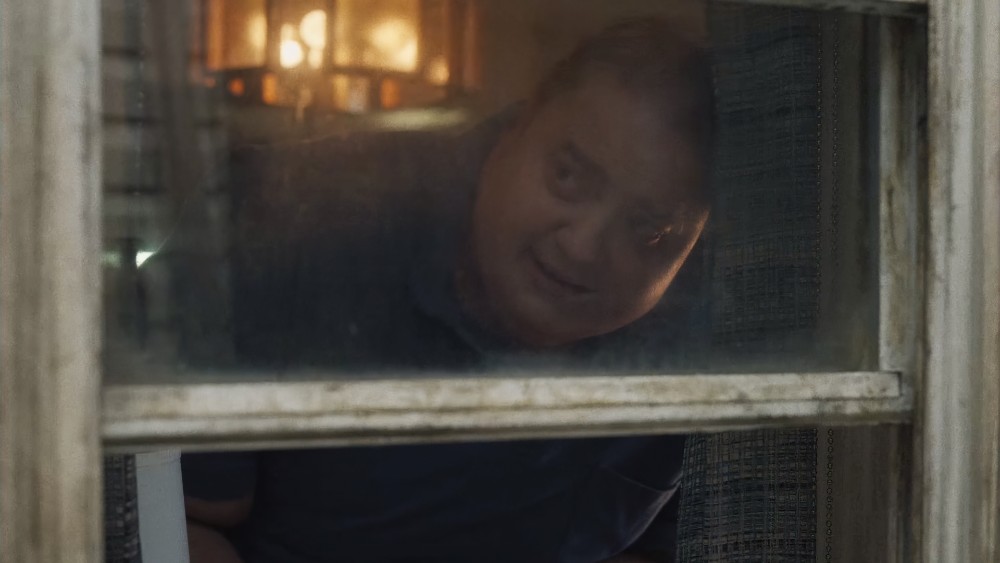
BTL: Do you have a preference yourself? Do you like being involved earlier?
Simonsen: I’ve had pretty good luck with writing things early on, and having them go into the film and kind of feel like they belong there. It’s always a bit of a fear that I’m not going to know how it works, because I don’t have picture, but the more I’ve done it, the more I really appreciate having that freedom to not just create music that… I can just go into my imagination, that’s really satisfying, but also, I feel the construction of the music becomes… it’s only trying to serve the music itself; it’s not trying to serve picture. I think that that can result in a more cohesive composition sometimes, so I like working [on music] early, and also trying to help my filmmakers from having to use other people’s existing music.
If it’s me, I’ve had a number of times when it’s my own music in the temp, and I can’t beat it. I think that when people unlock a scene to a piece of music, it’s branded very strongly. It takes a lot for a filmmaker to unclench their jaws around something and fall in love with something else. Whatever I can do to have it be as unique and original as possible, I think is good.
BTL: I feel like only composers who have written a piece of music for a film or visual medium can tell when some of their own earlier music doesn’t fit the picture as well as the filmmaker or music editor hopes it does. They can tell right away. Is that the case with you as well?
Simonsen: It’s also vice-versa. Sometimes, there’ll be something that pops up that I didn’t write for this scene, but that works really great. Sometimes, I’ll write a piece for a specific scene, and the director or the editor will move into some new place, and I’ll ask, “What did you think of that scene?” “Oh, no, it didn’t work for that scene at all, but we moved it to this other scene, and it works great!” And so, it’s a collaboration. I tend to be supportive when other people feel like whatever piece of music that’s been created is working for a moment.
BTL: This is a bit of a tangent, but I’d love to know more about the Echo Society, which I read about in your bio.
Simonsen: The Echo Society is an artists’ collective that I’ve founded with some other composer friends and artist friends. We create site-specific one-off shows where we have a central theme, and we invite people to come and create in a response to that theme, [and see] how they might interpret that theme. Everyone is creating new work for these one-off shows that basically happened once, or maybe twice. We’ve done one show where we had an early show and a late show, but it just happened on that day. The idea is to bring people together and have these experiences that are immersive, and feel like they’re created with the people [who] are there in the room, and then, they’re gone.
We’ve done six of them, and they’ve all been in different venues, and we try to get into interesting places and react to the space in the concept and design of the show as well. And it’s been great. We’ve had really amazing turnouts, and we’ve worked with really amazing artists and co-creators and producers, and it’s been a really fun endeavor. We’ve got a lot of stuff that we’re working on for this new year coming up, so hopefully, there’ll be some announcements soon.
BTL: Where do you do those?
Simonsen: So far, they’ve just been in L.A.
BTL: You’ve gotta come to New York, but I only say that because I’m in New York.
Simonsen: We have a lot of friends over there. We’d love to get over there.
BTL: My last question is one of the newer questions I’ve been asking composers, but is there anything you’ve heard in a score for a recent film or TV series that has really blown you away? I’m always curious about what composers hear that impresses them versus just me.
Simonsen: I’ve been loving [The] White Lotus. Cristobal [Tapia de Veer], the Composer on that, is really great. He’s got a fresh voice and approach, and he seems like a really fun personality, so I’ve been enjoying his work.
The Whale is still playing in select theaters courtesy of A24, while Lionsgate will make the film available to buy or rent on all major VOD/digital platforms as well as on Blu-ray/DVD on March 14.





